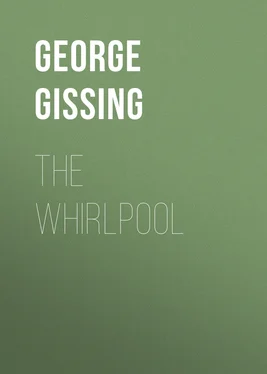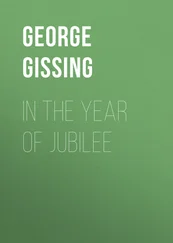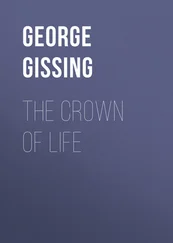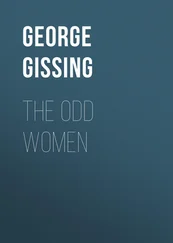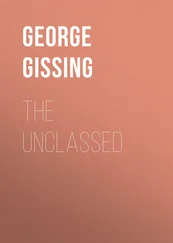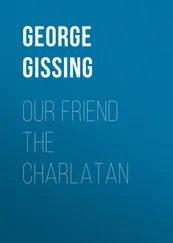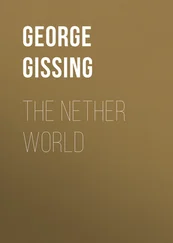George Gissing - The Whirlpool
Здесь есть возможность читать онлайн «George Gissing - The Whirlpool» — ознакомительный отрывок электронной книги совершенно бесплатно, а после прочтения отрывка купить полную версию. В некоторых случаях можно слушать аудио, скачать через торрент в формате fb2 и присутствует краткое содержание. Жанр: foreign_prose, literature_19, foreign_antique, на английском языке. Описание произведения, (предисловие) а так же отзывы посетителей доступны на портале библиотеки ЛибКат.
- Название:The Whirlpool
- Автор:
- Жанр:
- Год:неизвестен
- ISBN:нет данных
- Рейтинг книги:4 / 5. Голосов: 1
-
Избранное:Добавить в избранное
- Отзывы:
-
Ваша оценка:
- 80
- 1
- 2
- 3
- 4
- 5
The Whirlpool: краткое содержание, описание и аннотация
Предлагаем к чтению аннотацию, описание, краткое содержание или предисловие (зависит от того, что написал сам автор книги «The Whirlpool»). Если вы не нашли необходимую информацию о книге — напишите в комментариях, мы постараемся отыскать её.
The Whirlpool — читать онлайн ознакомительный отрывок
Ниже представлен текст книги, разбитый по страницам. Система сохранения места последней прочитанной страницы, позволяет с удобством читать онлайн бесплатно книгу «The Whirlpool», без необходимости каждый раз заново искать на чём Вы остановились. Поставьте закладку, и сможете в любой момент перейти на страницу, на которой закончили чтение.
Интервал:
Закладка:
George Gissing
The Whirlpool
Part the First
CHAPTER 1
Harvey Rolfe was old enough to dine with deliberation, young and healthy enough to sauce with appetite the dishes he thoughtfully selected. You perceived in him the imperfect epicure. His club had no culinary fame; the dinner was merely tolerable; but Rolfe's unfinished palate flattered the second-rate cook. He knew nothing of vintages; it sufficed him to distinguish between Bordeaux and Burgundy; yet one saw him raise his glass and peer at the liquor with eye of connoisseur. All unaffectedly; for he was conscious of his shortcoming in the art of delicate living, and never vaunted his satisfactions. He had known the pasture of poverty, and the table as it is set by London landladies; to look back on these things was to congratulate himself that nowadays he dined.
Beyond the achievement of a vague personal distinction at the Metropolitan Club, he had done nothing to make himself a man of note, and it was doubtful whether more than two or three of the members really liked him or regarded him with genuine interest. His introduction to this circle he owed to an old friend, Hugh Carnaby, whose social position was much more clearly defined: Hugh Carnaby, the rambler, the sportsman, and now for a twelvemonth the son-in-law of Mrs. Ascott Larkfield. Through Carnaby people learnt as much of his friend's history as it concerned anyone to know: that Harvey Rolfe had begun with the study of medicine, had given it up in disgust, subsequently was 'in business', and withdrew from it on inheriting a competency. They were natives of the same county, and learnt their Latin together at the Grammar School of Greystone, the midland town which was missed by the steam highroad, and so preserves much of the beauty and tranquillity of days gone by. Rolfe seldom spoke of his own affairs, but in talking of travel he had been heard to mention that his father had engineered certain lines of foreign railway. It seemed that Harvey had no purpose in life, save that of enjoying himself. Obviously he read a good deal, and Carnaby credited him with profound historical knowledge; but he neither wrote nor threatened to do so. Something of cynicism appeared in his talk of public matters; politics amused him, and his social views lacked consistency, tending, however, to an indolent conservatism. Despite his convivial qualities, he had traits of the reserved, even of the unsociable, man: a slight awkwardness in bearing, a mute shyness with strangers, a hesitancy in ordinary talk, and occasional bluntness of assertion or contradiction, suggesting a contempt which possibly he did not intend. Hugh Carnaby declared that the true Rolfe only showed himself after a bottle of wine; maintained, moreover, that Harvey had vastly improved since he entered upon a substantial income. When Rolfe was five and twenty, Hugh being two years younger, they met after a long separation, and found each other intolerable; a decade later their meeting led to hearty friendship. Rolfe had become independent, and was tasting his freedom in a twelvemonth's travel. The men came face to face one day on the deck of a steamer at Port Said. Physically, Rolfe had changed so much that the other had a difficulty in recognising him; morally, the change was not less marked, as Carnaby very soon became aware. At thirty-seven this process of development was by no means arrested, but its slow and subtle working escaped observation unless it were that of Harvey Rolfe himself.
His guest this evening, in a quiet corner of the dining-room where he generally sat, was a man, ten years his junior, named Morphew: slim, narrow-shouldered, with sandy hair, and pale, delicate features of more sensibility than intelligence; restless, vivacious, talking incessantly in a low, rapid voice, with frequent nervous laughs which threw back his drooping head. A difference of costume—Rolfe wore morning dress, Morphew the suit of ceremony—accentuated the younger man's advantage in natural and acquired graces; otherwise, they presented the contrast of character and insignificance. Rolfe had a shaven chin, a weathered complexion, thick brown hair; the penumbra of middle-age had touched his countenance, softening here and there a line which told of temperament in excess. At this moment his manner inclined to a bluff jocularity, due in some measure to the bottle of wine before him, as also was the tinge of colour upon his cheek; he spoke briefly, but listened with smiling interest to his guest's continuous talk. This ran on the subject of the money-market, with which the young man boasted some practical acquaintance.
'You don't speculate at all?' Morphew asked.
'Shouldn't know how to go about it,' replied the other in his deeper note.
'It seems to me to be the simplest thing in the world if one is content with moderate profits. I'm going in for it seriously—cautiously—as a matter of business. I've studied the thing—got it up as I used to work at something for an exam. And here, you see, I've made five pounds at a stroke—five pounds! Suppose I make that every now and then, it's worth the trouble, you know—it mounts up. And I shall never stand to lose much. You see, it's Tripcony's interest that I should make profits.'
'I'm not quite sure of that.'
'Oh, but it is ! Let me explain—'
These two had come to know each other under peculiar circumstances a year ago. Rolfe was at Brussels, staying—his custom when abroad—at a hotel unfrequented by English folk. One evening on his return from the theatre, he learnt that a young man of his own nationality lay seriously ill in a room at the top of the house. Harvey, moved by compassion, visited the unfortunate Englishman, listened to his ravings, and played the part of Good Samaritan. On recovery, the stranger made full disclosure of his position. Being at Brussels on a holiday, he had got into the company of gamblers, and, after winning a large sum (ten thousand francs, he declared), had lost not only that, but all else. that he possessed, including his jewellery. He had gambled deliberately; he wanted money, money, and saw no other way of obtaining it. In the expansive mood of convalescence, Cecil Morphew left no detail of his story unrevealed. He was of gentle birth, and had a private income of three hundred pounds, charged upon the estate of a distant relative; his profession (the bar) could not be remunerative for years, and other prospects he had none. The misery of his situation lay in the fact that he was desperately in love with the daughter of people who looked upon him as little better than a pauper. The girl had pledged herself to him, but would not marry without her parents' consent, of which there was no hope till he had at least trebled his means. His choice of a profession was absurd, dictated merely by social opinion; he should have been working hard in a commercial office, or at some open-air pursuit. Naturally he turned again to the thought of gambling, this time the great legalised game of hazard, wherein he was as little likely to prosper as among the blacklegs of Brussels. Rolfe liked him for his ingenuousness, and for the vein of poetry in his nature. The love affair still went on, but Morphew seldom alluded to it, and his seasoned friend thought of it as a youthful ailment which would pass and be forgotten.
'I'm convinced,' said the young man presently, 'that any one who really gives his mind to it can speculate with moderate success. Look at the big men—the brokers and the company promoters, and so on; I've met some of them, and there's nothing in them—nothing! Now, there's Bennet Frothingham. You know him, I think?'
Rolfe nodded.
'Well, what do you think of him? Isn't he a very ordinary fellow? How has he got such a position? I'm told he began just in a small way—by chance. No doubt he found it so easy to make money he was surprised at his success. Tripcony has told me a lot about him. Why, the "Britannia" brings him fifteen thousand a year; and he must be in a score of other things.'
Читать дальшеИнтервал:
Закладка:
Похожие книги на «The Whirlpool»
Представляем Вашему вниманию похожие книги на «The Whirlpool» списком для выбора. Мы отобрали схожую по названию и смыслу литературу в надежде предоставить читателям больше вариантов отыскать новые, интересные, ещё непрочитанные произведения.
Обсуждение, отзывы о книге «The Whirlpool» и просто собственные мнения читателей. Оставьте ваши комментарии, напишите, что Вы думаете о произведении, его смысле или главных героях. Укажите что конкретно понравилось, а что нет, и почему Вы так считаете.
